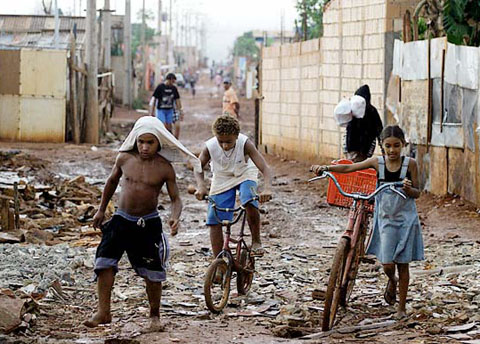Collapse with eyes wide shut: like Iraq only worse
by Ken Stokes on 18 May 2007 SusHI http://kauaian.net/blog/
Remember the book Limits to Growth? Yeah, the one co-authored by my heroine, Donella Meadows, that’s over there collecting dust on your shelf.
It’s worth recalling that the book discusses 10 different scenarios, most of which show a global collapse in the form of a rapid decrease of the world population sometime after the year 2030.
According to these scenarios, between 2030 and 2070 the world population decreases from somewhere around 7 billion people to somewhere around 1 billion people.
Now, François Cellier, a specialist in system simulation at the Institute of Computational Science in Switzerland, shows us why we face a shrinking set of options for dealing with this prospective collapse (via www.theoildrum.com).
Says Cellier, “in 1972, there were considerably more options available to avoid the collapse than are still available today. The window of opportunity is closing rapidly, and up to now, we seem to have consistently chosen paths leading to collapse.”
The reason? That old bugaboo, exponentiality.
“Our economy has been optimized to exploit exponential growth, and once exponential growth ends, it is designed to fail,” says Cellier.
Cellier presents a scenario model that contains five variables, including population, pollution, unrecoverable natural resources, money invested in the world economies, and the percentage of that money invested in the agricultural sector.
Cellier then shows what happens if we vary the rate at which the natural unrecoverable resources (like fossil fuels) are getting exhausted.
He defines a ‘performance index’ to show the relationship between a high living standard and population pressures. Then he runs the scenarios looking for ways to maintain a high ‘performance index’ while avoiding human die-off.
Cellier discovers a counter-intuitive result. Turns out, the faster we use up the remaining fossil fuels, the better it is.
“The reason is” says Cellier, “that after the end of cheap oil the exponential growth pattern cannot be preserved any longer. The sooner we get out of the exponential growth pattern, the better we’ll be off in the long run.”
Says Cellier, “two of the scenarios (the blue and the red), are plagued by massive die-off after the year 2040. The other three scenarios avoid the die-off.”
Hence, says Cellier, “we ought to prevent the blue and red scenarios from becoming our future.”
Yet, these are precisely the scenarios that offer the best short-term perspectives.
Cellier concludes:
“Since market forces always optimize with a short time horizon of two years or less, our politicians and business managers will invariably embrace the blue or red scenarios, and consequently, we are meeting our demise with our eyes wide shut.”
Cellier notes that “we cannot rely on market forces to get us out of the exponential growth dilemma. Our business managers and politicians have every (short-term) interest in preserving the exponential growth for as long as they can.”
Instead, Cellier notes (tongue-in-cheek), “we can rely on our business managers and politicians to fix the exponential growth problem as much as we can rely on junkies to fix the drug abuse problem.”
Oh, and, what does collapse look like?
In order to reduce world population from 7 billion to 1 billion within a few decades, we would have to maintain an annual excess death rate of 3% over an extended period of time.
As Cellier points out, this is worse than that of current-day Iraq death rate by a factor of six…and we would need to maintain these conditions for 50 years in a row.
Yikes!
|
